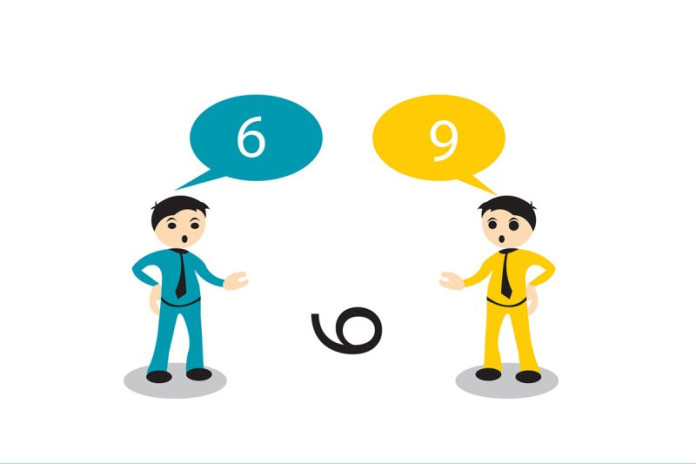The Importance of Digital Media Marketing in Today's World

- 432
- 0
In the modern world, where technology is an essential part of our daily lives, businesses are constantly searching for new ways to reach and engage customers.
One of the most effective ways to do so is through digital media marketing. This form of marketing leverages online platforms, such as social media, search engines, websites, and email, to promote products, services, and brands to a broader audience. Digital media marketing has gained immense popularity in recent years due to its cost-effectiveness, wide reach, and ability to track and measure campaign performance. In this article, we will explore the significance of digital media marketing, its various components, and how businesses can utilize it to grow and succeed. What is Digital Media Marketing? Digital media marketing refers to the use of online channels to market a business's products or services. This can include activities such as social media marketing, search engine optimization (SEO), email marketing, content marketing, pay-per-click (PPC) advertising, influencer marketing, and more. The goal is to reach potential customers through digital platforms, where people spend a large portion of their time. Unlike traditional marketing, which involves print media, television, or radio advertisements, digital marketing provides businesses with the opportunity to interact with their audience directly. This is done through targeted ads, content creation, and social media interaction. Additionally, digital marketing allows for real-time communication and engagement, which is a huge advantage for brands looking to build strong relationships with their customers. Why is Digital Media Marketing Important? The importance of digital media marketing cannot be overstated, especially in the current digital era. More people are using smartphones, computers, and tablets to browse the internet, make purchases, and interact with businesses. With billions of people online, businesses that embrace digital marketing are more likely to thrive. Here are some key reasons why digital media marketing is crucial for business success: 1. Wide Reach: Traditional marketing methods, such as print advertisements or TV commercials, have limitations in terms of audience reach. Digital media marketing, on the other hand, allows businesses to target specific demographics, regions, and interests. With platforms like Facebook, Instagram, and Google Ads, businesses can reach a global audience, regardless of their location. 2. Cost-Effective: One of the biggest advantages of digital media marketing is that it is often more affordable than traditional marketing. While a television or radio ad can cost thousands of dollars, digital marketing campaigns can be created with a much smaller budget.
For instance, social media advertising and search engine marketing are often less expensive but still offer significant returns on investment. 3. Targeted Marketing: Digital marketing allows businesses to target specific groups of people based on factors such as age, gender, interests, location, and online behavior. For example, if a company sells fitness products, they can target individuals who are interested in health and fitness, which increases the chances of making a sale. 4. Measurable Results: With digital marketing, it is easy to track the performance of campaigns. Platforms like Google Analytics and social media insights provide detailed reports on website traffic, user engagement, conversions, and more. This allows businesses to make data-driven decisions, optimize their strategies, and improve overall campaign performance. 5. Builds Relationships: Digital marketing enables businesses to engage directly with their customers. Whether through social media posts, email newsletters, or chatbots, businesses can interact with their audience in real-time. This helps in building a strong relationship with customers, which can lead to increased brand loyalty and repeat business. Components of Digital Media Marketing Digital media marketing is a broad field, encompassing various strategies and tools. Let's take a closer look at some of the most important components of digital media marketing: 1. Search Engine Optimization (SEO): SEO is the practice of optimizing a website to rank higher in search engine results. By targeting relevant keywords and improving the quality of content, businesses can increase their website's visibility and drive organic traffic. SEO is a long-term strategy that can yield significant results, as people are more likely to click on websites that appear on the first page of search results. 2. Social Media Marketing: Social media platforms, such as Facebook, Instagram, Twitter, and LinkedIn, offer a great opportunity for businesses to connect with their audience. Social media marketing involves creating engaging content, running targeted ads, and interacting with followers. It's a great way to build brand awareness, promote products, and foster customer loyalty.
3. Content Marketing: Content marketing focuses on creating valuable and relevant content that educates, entertains, or informs the audience. This can include blog posts, videos, infographics, podcasts, and more. High-quality content helps establish a business as an authority in its industry and can drive organic traffic to a website. 4. Email Marketing: Email marketing involves sending targeted messages to a list of subscribers. Businesses can use email marketing to nurture leads, promote new products, offer discounts, and more. Personalized and well-timed emails can drive significant conversions and sales, making it an essential part of a digital marketing strategy. 5. Pay-Per-Click (PPC) Advertising: PPC advertising allows businesses to place ads on search engines, social media platforms, and other websites. Advertisers only pay when someone clicks on their ad. Google Ads and Facebook Ads are two of the most popular PPC platforms. PPC campaigns are effective for driving targeted traffic and increasing sales in a short period. 6. Influencer Marketing: Influencer marketing involves partnering with individuals who have a large following on social media to promote products or services. These influencers have the power to sway the purchasing decisions of their audience, making influencer marketing a powerful tool for businesses looking to increase brand awareness and reach new customers. How to Leverage Digital Media Marketing for Business Success For businesses to succeed in digital media marketing, they must create a well-rounded strategy that integrates various digital channels. Here are a few steps businesses can take to effectively use digital marketing: 1. Understand Your Audience: Before diving into digital marketing, it's crucial to understand your target audience. Identify their preferences, behavior, and needs. This will help you create content and campaigns that resonate with them. 2. Set Clear Goals: Determine what you want to achieve with your digital marketing efforts. Are you looking to increase website traffic, generate leads, or boost sales? Setting clear, measurable goals will help you track your progress and evaluate the success of your campaigns.
3. Create High-Quality Content: Content is the backbone of digital marketing. Whether it's blog posts, videos, or social media posts, create content that provides value to your audience. Engaging and informative content will keep your audience coming back for more and can drive traffic to your website. 4. Monitor and Adjust: Digital marketing is an ongoing process. It's important to monitor the performance of your campaigns and adjust them as needed. Use analytics tools to track key metrics, such as website traffic, conversion rates, and engagement. By analyzing this data, you can optimize your campaigns for better results. Digital media marketing has become an essential tool for businesses looking to grow and succeed in today's competitive landscape. It provides numerous benefits, including a wider reach, cost-effectiveness, targeted marketing, and measurable results. By utilizing various components of digital marketing, such as SEO, social media marketing, content creation, and PPC advertising, businesses can connect with their audience, build relationships, and ultimately drive sales and revenue. As technology continues to evolve, digital media marketing will only become more important for businesses that want to stay ahead of the competition.

















































